The length of time before you can tan in the sun or use tanning beds is determined by a variety of variables. What you must realize, though, is that if you try to keep your tattoo away from strong UV radiation as much as possible, it will always look better throughout its life. Without adequate protection, tanning with tattoos is strongly discouraged.
If you’re like most people, you love the summertime because it’s the perfect time to get a tan. But have you ever wondered how long after getting a tattoo you can start tanning? Tattoos are a great way to show off your personality, but they come with some risks. In this blog post, we will discuss the dangers of tanning after getting a tattoo and how long you should wait before hitting the beach!
Can You Tan After Getting A Tattoo:
UV Light Fades Your Tattoo
Tanning after getting a tattoo might cause fading and pigment damage. A fresh tattoo has crisp lines and brilliant hues. If you want to keep it that way, make sure your tattoo isn’t exposed to UV light. Tattoos may fade over time, but this kind of light will speed up the process. Your tattoo will absorb the UV rays, which can break the ink’s pigment particles. The removal of a tattoo involves using a laser, which is essentially a strong form of UV radiation [1].
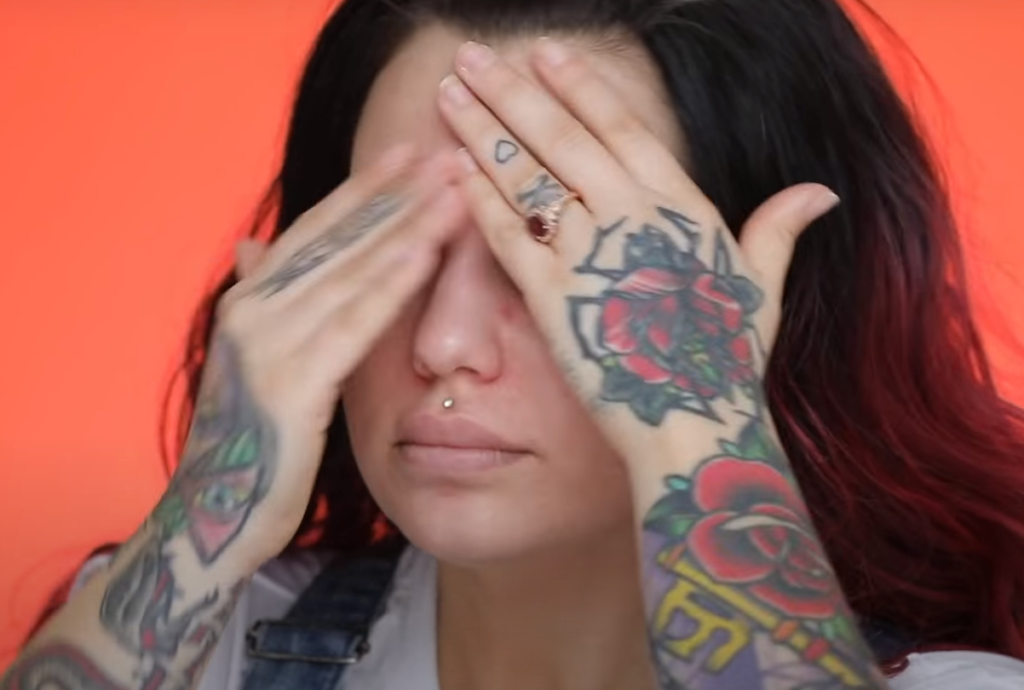
Sun Exposure Changes The Colors Of Your Tattoo
While sun exposure is the main cause of fading, it can also change the colors of your tattoo. Black and dark green inks absorb light more than lighter colors. As a result, they don’t fade as much as other colors when exposed to sunlight. However, this doesn’t mean they won’t change at all.
If you want to protect your tattoo while tanning, there are a few things you can do:
- First, make sure your tattoo is completely healed before hitting the beach or pool;
- Once it’s healed, cover it with sunscreen (SPF 30 or higher) whenever you’re going to be in the sun. You can also wear clothing that covers your tattoo;
- Finally, try to tan in the morning or evening when the sun’s rays are less intense;
Your Tattoo Can Blister And Crack
If you’ve ever had a sunburn, you know that your skin can blister and crack when it’s exposed to too much heat. The same thing can happen to your tattoo if you’re not careful. When your tattoo starts to blister, it’s because the ink has separated from the top layer of the skin. This can cause the ink to fade or even disappear completely. So if you want your tattoo to stay looking fresh and vibrant, it’s important to keep it out of the sun [2].
You should wait at least two weeks before hitting the beach or spending any significant amount of time in the sun. This will give your tattoo time to heal and will help prevent any damage that could be caused by exposure to the sun’s ultraviolet rays.
If you must go out in the sun, make sure to cover up your tattoo with sunscreen. A good rule of thumb is to apply sunscreen with an SPF of 30 or higher every two hours, even if you’re not planning on spending a lot of time in the sun. It’s also a good idea to wear loose-fitting clothing that covers your tattoo.
Tanning Alternatives Better For Your Tattoo:
Spray Tanning
Spray tanning is a great alternative to sun tanning or using a tanning bed. It is much safer for your tattoo and will not cause any damage. Spray tanning can be done at home or in a salon. It is important to make sure that you follow the directions carefully so that you do not get an uneven tan [3].
Self-Tanning Lotions
Self-tanning lotions are a great way to get a natural-looking tan without having to spend time in the sun. However, it’s important to wait until your tattoo has completely healed before using a self-tanner. Depending on the size and location of your tattoo, this could take anywhere from two weeks to six months.
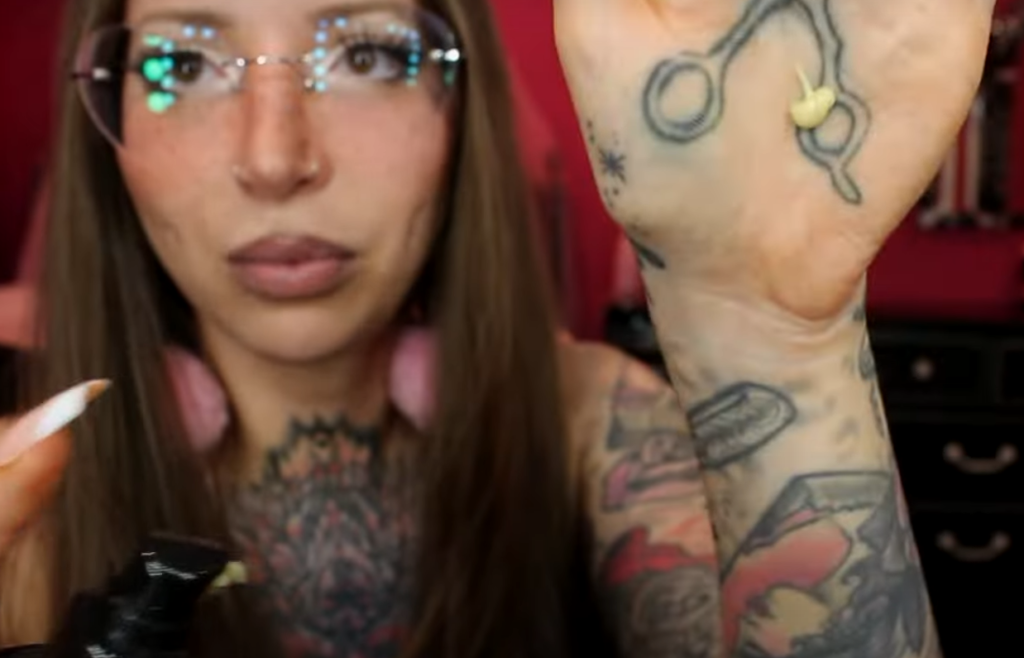
Use Sunscreen With A High SPF
If you must sun tan, make sure to use sunscreen with a high SPF. This will help to protect your tattoo from the sun’s harmful rays. Apply the sunscreen generously and reapply often, especially if you are swimming or sweating.
Tanning With Tattoos As Safely As Possible:
Limit Your Exposure The sun’s ultraviolet rays can damage your skin, no matter what your age. This is especially true for tattoos because the ink in tattoos can absorb UV light. The risk is greater if your tattoo was done recently or if it’s a brightly colored tattoo.
To play it safe, limit your exposure to sunlight and tanning beds while you have a tattoo. If you must be in the sun, cover up your tattoo with clothing or sunscreen with an SPF of at least 30. And avoid tanning altogether until your tattoo has completely healed.
It usually takes about 2 weeks for a new tattoo to heal fully. Until then, keep it clean and dry to prevent infection and irritation.
Always Moisturize
Tattoos can dry out your skin, making it more prone to wrinkling and other signs of aging. To help keep your skin healthy and hydrated, apply a good quality moisturizer to your tattoo several times a day. This will also help keep the ink from fading [4].
After taking these precautions, you should be able to safely enjoy the sun with your new tattoo! Just remember to limit your exposure and always moisturize.
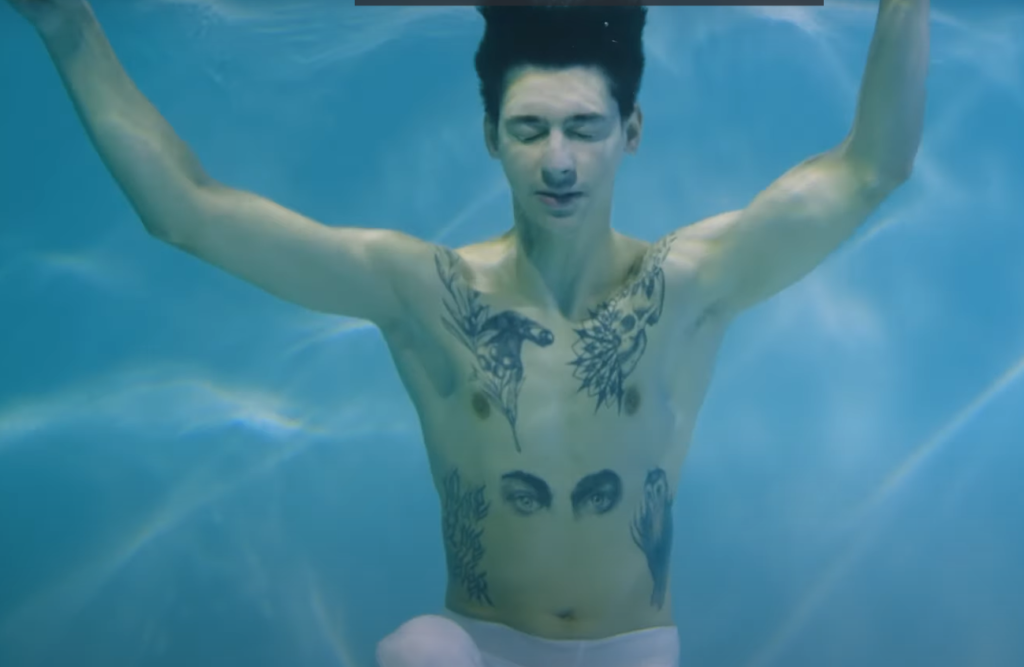
Deal With Sunburn Promptly
If you do get sunburned, take extra care of your skin. Drink lots of fluids and apply a cool compress to the area. You can also use an aloe vera-based lotion or cream to help soothe the skin. If your sunburn is severe, blisters form, or you have other symptoms like fever, seek medical attention.
Once your sunburn has healed, make sure to moisturize your skin daily and use sunscreen with an SPF of 30 or higher whenever you’re outdoors. This will help prevent your tattoo from fading prematurely. And if you plan on spending time in the sun, try to do it during the cooler hours of the day and wear protective clothing like hats and long-sleeved shirts.
Don’t Risk It
Ultimately, it’s best to err on the side of caution when it comes to sun exposure after getting a tattoo. The last thing you want is for your beautiful new ink to be damaged by the sun. So, if you can, avoid tanning and spending time in direct sunlight until your tattoo has fully healed.
If you have any questions about how to care for your tattoo, or if you think your tattoo may be infected, be sure to contact your tattoo artist or healthcare provider. And remember, always use sunscreen to protect your skin – tattoos or not!
Tattoos And Fading In The Sun
Tattoo fading is a long-term process. Even if you go out in the sun a lot with a fresh tattoo, your ink will not appear to be fading in the sun because it won’t be.
If you’re considering getting a tattoo, it’s important to remember that tattoos are permanent. You might be able to lounge in the sun for a few years with no visible fading, but over time, exposure to the sun will cause your tattoo to degrade. So if you want your tattoo to last, avoid extended exposure to sunlight.
Of course, if your ink has already considerably faded from tanning many times after originally getting it, an experienced tattoo artist may be able to redo the area and bring it back to life.
Different colors of tattoo ink also fade at different rates over their lifetimes, with black/grey tattoos being able to hold up against the sun the best while light tattoos and white highlighting don’t hold up very well at all against UV rays. Colors in-between vary when it comes to the rate of fading.
How Do You Know When Your Tattoo Is Ready For You To Tan?
The first thing you need to consider is how your tattoo was done. If it was done by a professional, they will usually give you aftercare instructions. This will include when you can start tanning again. If your tattoo was done at home, it’s important to wait until the area is healed before starting to tan.
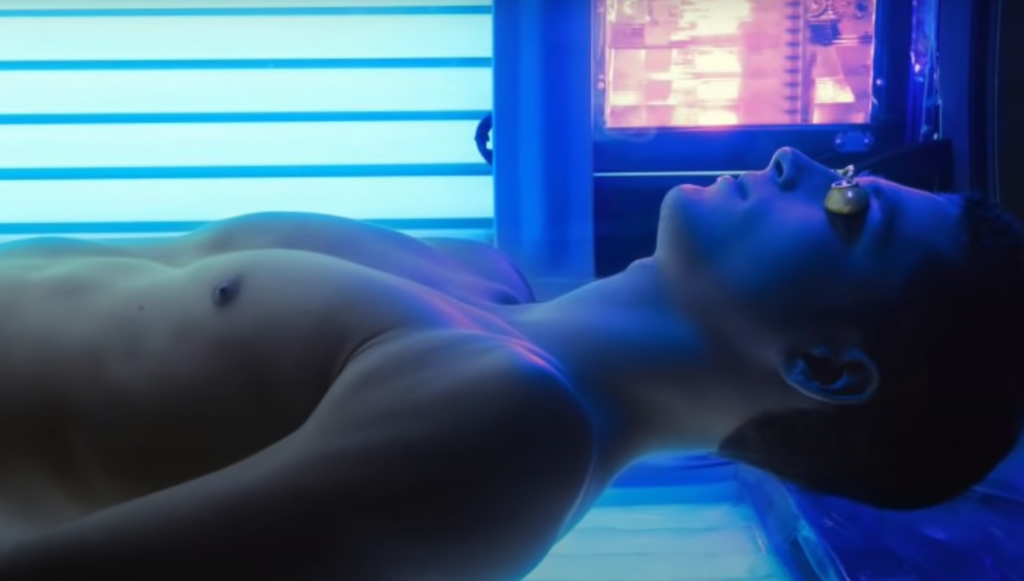
After you get a tattoo, wait two weeks to a month before getting spray-tanned or using a self-tanner. This gives the tattoo time to heal fully and prevents infection [5].
Once your tattoo has healed, you can start using a self-tanner or going in the sun. However, it’s important to use sunscreen on your tattoo. The sun can damage your tattoo and cause it to fade.
When using a self-tanner, it’s important to exfoliate your skin first. This will help the self-tanner go on evenly and prevent it from looking streaky. It’s also important to use a self-tanner that is specifically for the face or body so that it doesn’t irritate your skin. Apply the self-tanner according to the instructions on the bottle.
Can You Use A Spray Tan With New Tattoos?
After your tattoo has had 4 weeks to heal, you can then apply sunless tan products. The solution must not be applied until the skin is completely healed as tattoos are open wounds. Sunless tans provide a sheer tint of brown and will accentuate your tattoo [6].
If you are looking for more of a natural sun-kissed glow, then self-tanning lotions are the way to go. Be sure to do a patch test on your skin before applying any product all over as some people can be allergic to certain ingredients.
When Can I Sunbathe My Tattooed Skin?
The tattoo will be completely healed within 2-4 weeks, at which time you can sunbathe as normal. Keep in mind that your skin will be more sensitive to the sun’s rays after a tattoo, so it’s important to use sunscreen and avoid extended exposure to direct sunlight.
If you do plan on spending time in the sun, make sure to cover up your tattoo with clothing or sunscreen for added protection. After your tattoo has healed, you can enjoy the sun without worry! Just remember to take care of your skin and use sunscreen to prevent any damage from happening.
How Do You Protect Your Tattoos When Tanning?
The best way to protect your tattoos when tanning is to use sunscreen. Apply sunscreen with an SPF of at least 30 to the tattooed area and reapply as directed. You may also want to cover the tattoo with a bandage or clothing while you’re in the sun.
After you’ve been in the sun, take a cool shower or bath and gently pat your skin dry. Apply a moisturizer to your skin, including the tattooed area. This will help keep your skin hydrated and prevent your tattoo from drying out and fading.
If you have any concerns about how your tattoo is healing, contact your doctor or tattoo artist.
FAQ:
- Can I tan 2 weeks after getting a tattoo?
The short answer is yes, but it’s not recommended. Tattoos are created by inserting ink into the dermis, or middle layer of skin. This results in a wound, which needs time to heal. During the healing process, your skin is more vulnerable to infection and other damage.
Exposing your tattoo to sunlight can cause it to fade and may increase your risk of developing an infection. If you must tan, wait until your tattoo has fully healed before hitting the beach or pool.

- What happens if you tan with a new tattoo?
Tanning damages tattoos by causing fading and pigment damage. A tattoo is fresh when it has sharp lines and bright colors. To keep it looking new, make sure your tattoo does not have exposure to UV light [7].
- Can I cover my new tattoo on the sunbed?
If you just can’t wait for your tattoo to properly heal before using the tanning bed, you may cover it with a towel and fasten it with medical tape. To minimize any skin that isn’t part of the tattoo from being exposed, make sure the cloth is the same shape as your tattoo.
- Do tanning beds ruin tattoos?
Yes, tanning beds can make tattoos appear faded over time. The UV rays from tanning beds cause the ink pigment under the skin to break down. This can make your tattoo appear blurry or faded. If you are looking to keep your tattoo looking fresh and vibrant, it is best to avoid tanning beds altogether.
- How can I speed up my tattoo healing?
If you’re looking to speed up the tattoo healing process, there are a few things you can do:
- First, make sure you’re keeping the area clean. Wash it twice a day with a bar of mild soap and water, and apply a thin layer of tattoo aftercare ointment;
- Second, keep the area moisturized by applying a light lotion several times a day;
- Finally, avoid picking or scratching at the tattoo, as this can cause infection or other complications;
With proper care, your tattoo should heal within two to four weeks. Once it’s healed, you can safely tan without the worry of damaging the ink.
- How can I cover my new tattoo from the sun?
It’s best to keep it out of the sunlight during the healing process. If you have to, increase your coverage. Cover the tattoo with a shirt or a bandage and apply sunscreen, which should ideally contain mineral crystals. In fact, unlike chemical sunscreens, they shield against UV rays at the skin’s surface.
- Does drinking water help heal a tattoo?
Yes, drinking plenty of water helps to keep your skin hydrated and can speed up the healing process. It is important to keep your tattoo clean and dry, however, so avoid swimming or soaking in the tub for at least two weeks.
- Can I put lotion on my tattoo?
You can put lotion on your tattoo starting a few days after you get it, but be sure to use a light, unscented lotion. Apply the lotion sparingly and massage it gently into the skin. Avoid using petroleum jelly or other products that could trap moisture and lead to infection.
- Can you over-moisturize a tattoo?
Yes, you can over-moisturize a tattoo. This can lead to the tattoo becoming too soft and may cause the ink to spread or bleed. Moisturizing your tattoo is important, but you should only do it when the tattoo starts to feel dry.
If you over-moisturize your tattoo, it will become more susceptible to infection. It is important to keep your tattoo clean and dry so that bacteria do not have a chance to grow. If you think your tattoo may be infected, see a doctor immediately.
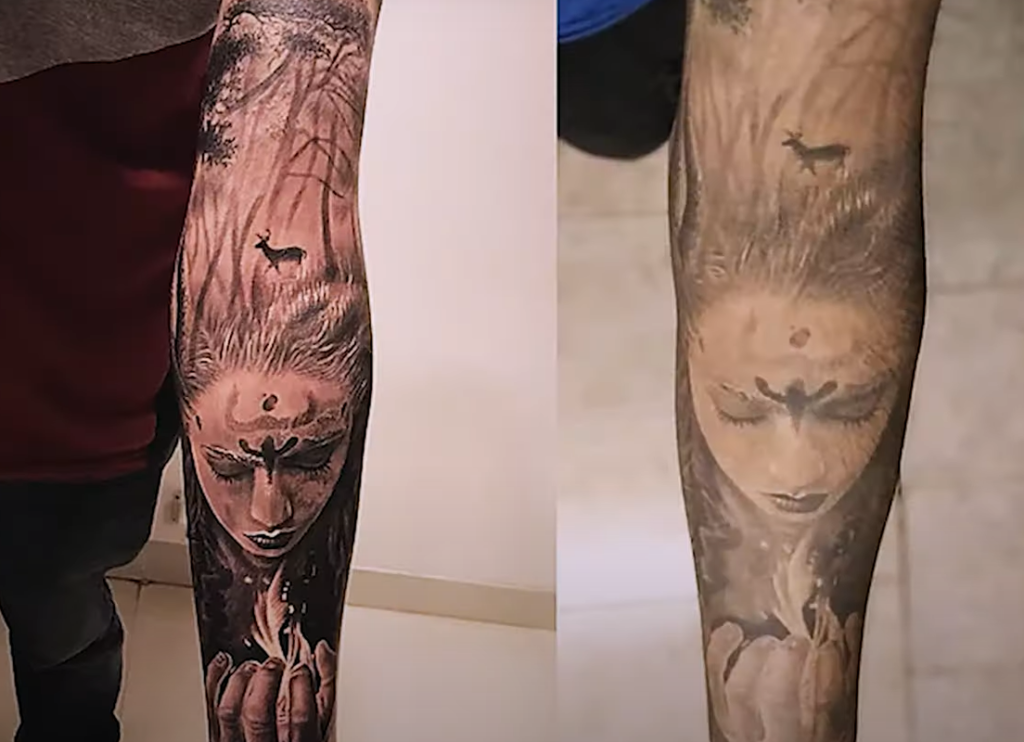
- Do black tattoos heal faster?
There is a lot of debate surrounding this topic. Some people believe that black tattoos heal faster because the ink is easier for the body to absorb. Others believe that it has more to do with the fact that black ink is less likely to fade than other colors. Ultimately, there is no scientific evidence to support either claim. If you’re concerned about how quickly your tattoo will heal, talk to your artist about using black ink.
- Why do tattoos burn after 3 days?
After enough time has passed, the burning, redness, and swelling should subside in one to two weeks. However, some people report that their tattoo itches for months, or even years, after the initial healing process. If your tattoo is still painful or itchy after two weeks, consult a dermatologist to make sure you don’t have an infection [8].
It’s also important to keep your skin hydrated and moisturized during the healing process. This will help ensure that your tattoo doesn’t get too dry, which can lead to itching and flaking. Use a gentle, unscented lotion or cream to keep your skin hydrated, and avoid direct sunlight on your tattoo for at least 6 weeks while it heals.
- Why is my tattoo fading after a month?
If your tattoo is fading after a month, it could be due to several reasons. It could be that the ink was not properly set in the skin, or that the artist used low-quality ink. Additionally, exposure to sunlight can cause tattoos to fade over time. If you notice your tattoo fading, it’s important to consult with your artist to determine the best course of action.
- When should I stop washing my tattoo twice a day?
You should stop washing your tattoo twice a day after it has healed. Depending on the size and location of your tattoo, it can take up to two weeks for it to heal completely. After it has healed, you can continue to wash it once a day with mild soap and water.
- What area hurts the most for a tattoo?
There are a lot of things that can affect how much pain you feel during and after getting a tattoo:
- The most important factor is usually where on your body you’re getting the tattoo. Tattoos on more boney areas like the elbow or ankle tend to be more painful than those on fleshier parts like the thigh or shoulder;
- Another big factor is size – generally speaking, the larger the tattoo, the more it’s going to hurt;
- And finally, how detailed or complicated the design is will also play a role in determining discomfort levels;
Useful Video: Tips for Tanning with Tattoos
References:
- https://www.threewarriors.com.au/blogs/news/tan-after-getting-a-tattoo
- https://www.savedtattoo.com/can-i-tan-after-getting-a-tattoo
- https://www.inkedmind.com/tanning-with-a-new-tattoo-is-it-a-good-idea
- https://authoritytattoo.com/tattoo-and-tanning-in-the-sun
- https://www.refinery29.com/en-us/tattoo-aftercare
- https://www.tampabaytan.com/will-sunless-spraytan-damage-tattoo
- https://www.threewarriors.com.au/blogs/news/tan-after-getting-a-tattoo
- https://authoritytattoo.com/why-does-my-tattoo-burn


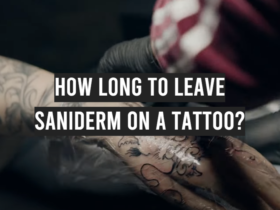
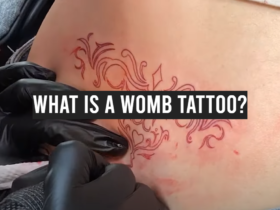

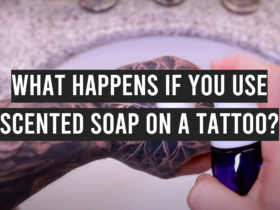
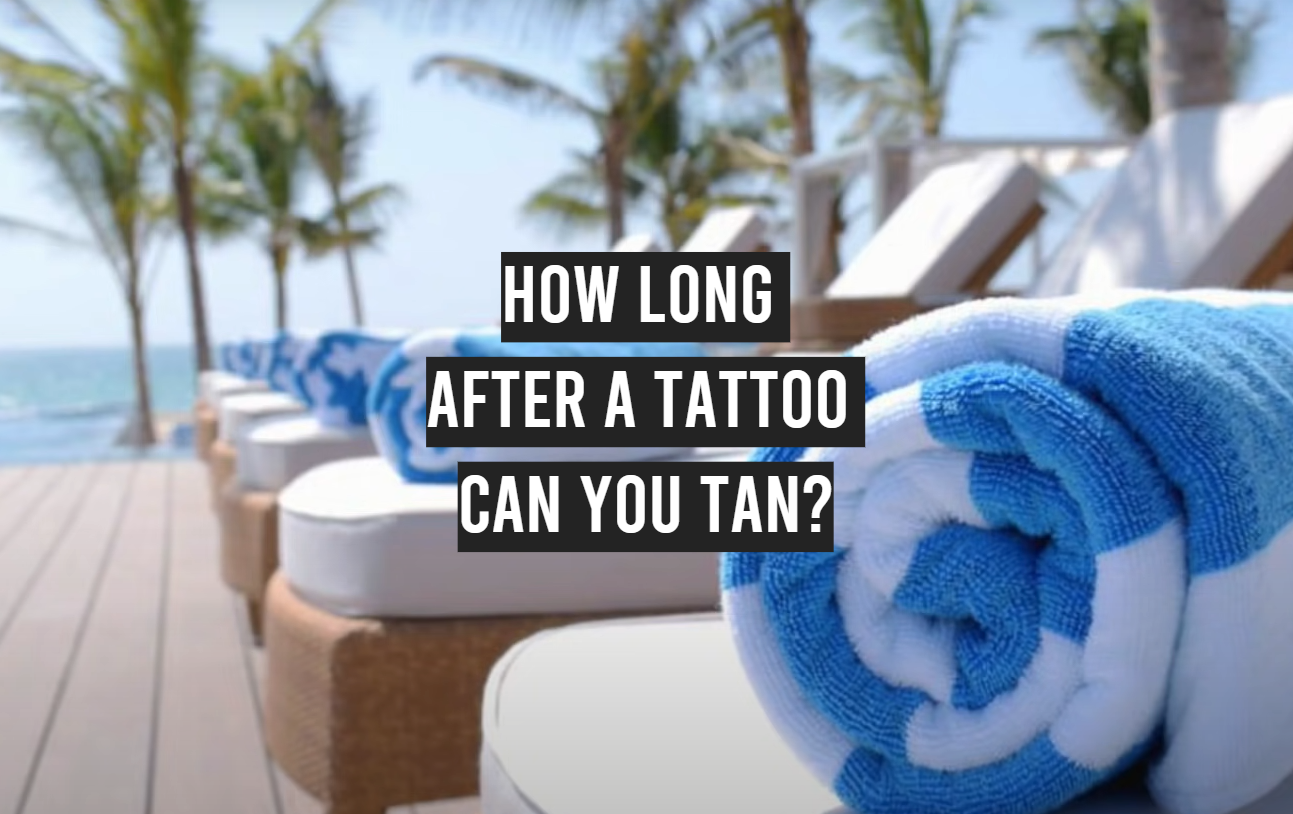

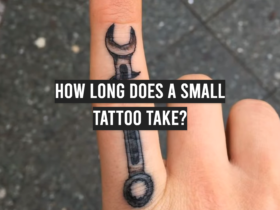
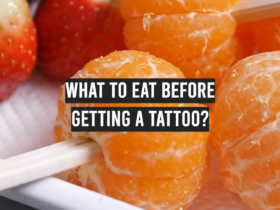
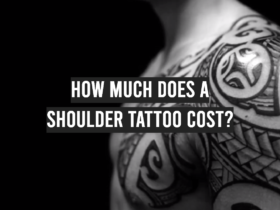
Leave a Review